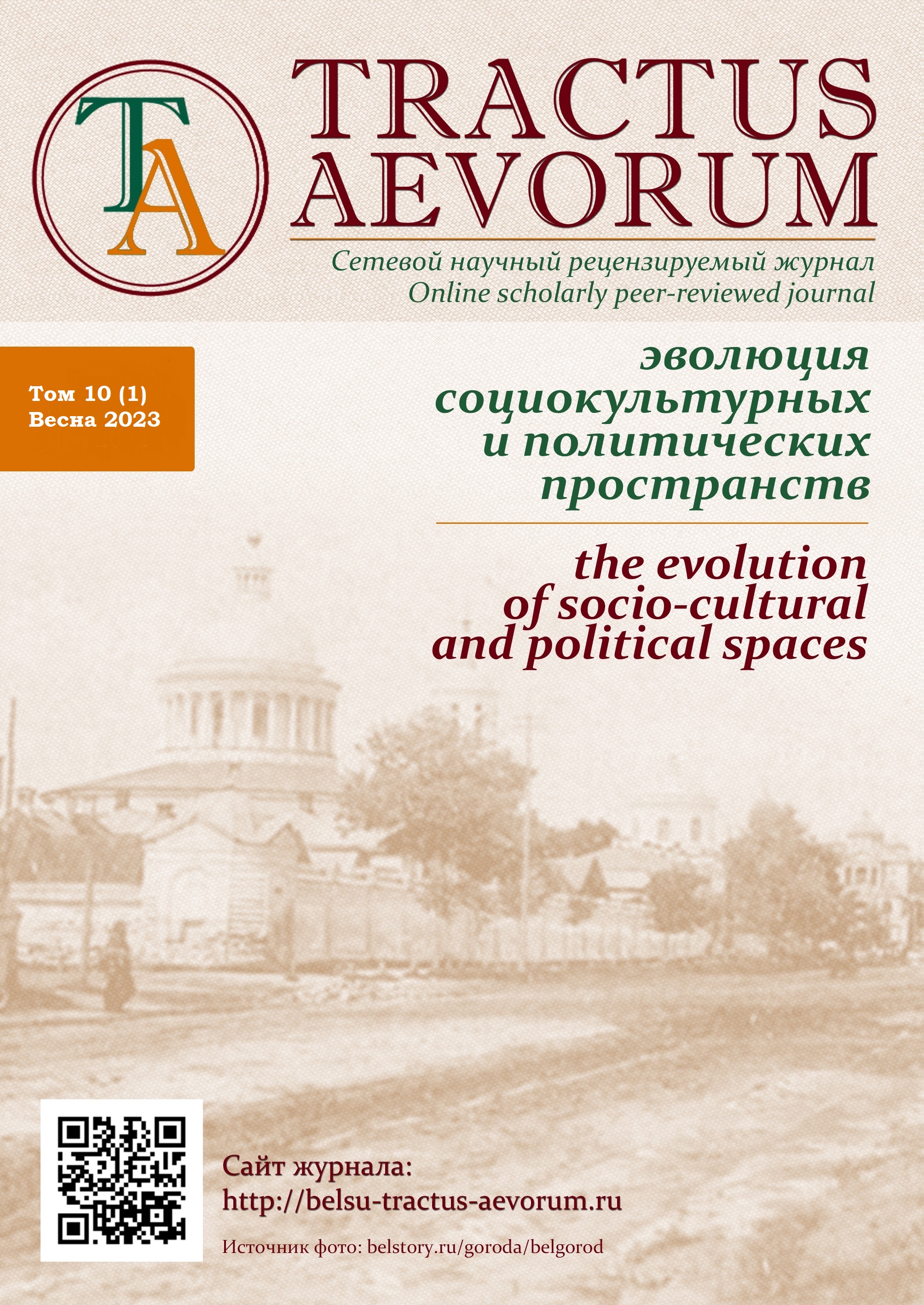|
A MULTIFACETED HISTORY: A LIE FOR GOOD
|
Is the tactical treatise of Dionysius Longinus a historical fact or historiographical myth?
|
  |
Alexander K. Nefedkin
Belgorod National Research University
85 Pobeda st., Belgorod, 308015, Russia
E-mail:
This e-mail address is being protected from spambots. You need JavaScript enabled to view it
It could think that there were no “Tactics” in the works of the ancient Greek rhetorician Longinus. Most likely, an anonymous military treatise under the descriptive title “De aciebus bellicis” was in the inventory used by the Swiss polymath Konrad Gesner, who considered this work to be a writing of Dionysius Longinus. Except in “Bibliotheca” by K. Gesner, this reference did not occur anywhere; there are no any traces of this treatise in historiography.
DOI: 10.18413/2312-3044-2023-10-1-3-8
|
Lies as a means of female influence
in late antique society
(according to Ammianus Marcellinus)
|
  |
Elizaveta V. Anokhina
Belgorod National Research University
14 Studencheskaya st. Belgorod, 308007, Russia
E-mail:
This e-mail address is being protected from spambots. You need JavaScript enabled to view it
The article analysis the types of influence presented in "Res Gestae" by Ammianus Marcellinus and implemented by women through the use and dissemination of false information. The main feminine characteristics are indicated, which partly explain the natural tendency of women to inconstancy of judgments and therefore, according to the late antique historian, deserve indulgence. At the same time, the motives that push the fair sex to intentional lies are analyzed, and the influential effects of such actions are also identified. The relationship between the value judgments of Ammianus Marcellinus about female influence and his gender representations, as well as the basic moral principles that he adheres to, has been established.
DOI: 10.18413/2312-3044-2023-10-1-9-19
|
"... They lied to them at every word": lie in the communication system of Russian peasants and landlords in the late 18th — early 20th centuries
|
  |
Vladimir A. Shapovalov, Irina V. Istomina
Belgorod National Research University
14 Studencheskaya st. Belgorod, 308007, Russia
E-mail:
This e-mail address is being protected from spambots. You need JavaScript enabled to view it
,
This e-mail address is being protected from spambots. You need JavaScript enabled to view it
The article deals with the lie as communicative phenomenon in the context of manipulative communication between peasants and landowners both in the pre-reform and post-reform periods. The authors highlight the reasons for the widespread use of lies by peasants, ranging from the desire to get something fraudulently from the landlords and ending with the evasion of corvée work or their poor-quality performance. Within the framework of manipulative communication, a lie was a convenient tool, since it was not always possible to quickly verify false information or expose it at all. Lies were also a “weapon of the weak”, when real resistance was hidden behind pretense and hypocrisy (rumors, gossip, labeling, etc.).
DOI: 10.18413/2312-3044-2023-10-1-20-33
|
Without noticing the glass ceiling: women in the leadership of higher education in Russia
|
  |
Zinara Z. Mukhina
Starooskolsky Technological Institute named after A.A. Ugarov (branch) of the Federal State Autonomous Educational Institution of Higher Education "National Research Technological University "MISIS"
42 Makarenko microdistrict, Stary Oskol, 309516, Russia
E-mail:
This e-mail address is being protected from spambots. You need JavaScript enabled to view it
According to the tradition, opinion that has long been established in Russian historiography, the women's issue in Russia was resolved in the mid-1930s, and with it the equality of women and men in all spheres of society was legislated. In fact, equality was manifested only in the political and economic mobilization of women, but not at all in the availability of professions and positions. However, a small "inaccuracy" about full equality turns out to be literally "a lie for salvation" when studying the biographical trajectories of individual Russians. Confident in the accessibility of any administrative heights, some educated and ambitious Russians proved by their own example the achievability of their own goals. The article substantiates the possibility of a professional breakthrough based on the identification of typicalities in the social behavior of individual representatives of the Russian educated elite. The success of female rectors in post-Soviet Russia undermines the belief that women are less competitive, reveals the reasons for underestimating women's professional competence.
DOI: 10.18413/2312-3044-2023-10-1-34-48
|
Defender of the Fatherland Day in the mirror of the Yaroslavl press (to the question of the historical accents of the holiday)
|
  |
Aleхey N. Ionov
Yaroslavl Higher Military School of Air Defense
67A Bolshaya Oktyabrskaya St., Yaroslavl, 150000, Russia
E-mail:
This e-mail address is being protected from spambots. You need JavaScript enabled to view it
Denis V. Tumakov
Yaroslavl State Medical University
5 Revolutsionnaya St., Yaroslavl, 150000, Russia
E-mail:
This e-mail address is being protected from spambots. You need JavaScript enabled to view it
The article is devoted to the history of the formation of the modern Russian holiday «Defender of the Fatherland Day» (formerly «Day of the Soviet Army and Navy», «Red Army Day»). Throughout the XX century, «February 23» changed its position in the political and socio-cultural space of the country. Having arisen as a professional holiday of the military over time, «Defender of the Fatherland Day» acquired the character of a nationwide celebration. At the same time, at each stage of its historical path, the holiday invariably reflected the ideological message of the current government. The materials of central and local periodicals allow us to analyze the significance of the holiday in the Soviet and post-Soviet periods, the peculiarities of its perception by citizens of the country.
DOI: 10.18413/2312-3044-2023-10-1-49-83
|
Russia as an Image of the Enemy in Foreign Politics and Historical Science
|
  |
Alexander V. Perepelitsyn
Voronezh State Pedagogical University
86 Lenina st., Voronezh, 394043, Russia
E-mail:
This e-mail address is being protected from spambots. You need JavaScript enabled to view it
Vladimir A. Toncikh
Belgorod State National Research University
85 Pobedy st., Belgorod, 308015, Russia
E-mail:
This e-mail address is being protected from spambots. You need JavaScript enabled to view it
The article reveals the main reasons for the spread of distorted ideas about Russia in the West, reveals the essence of foreign concepts that represent Russia as an enemy in politics and historical science, starting with the history of Ancient Rus' and ending with problems after the collapse of the Soviet Union. The historical stability and continuity of the cliches of hostility towards Russia imposed on Western society by its political and scientific elites is shown. Particular attention is paid to the distortions of the history of the Second World War and the Great Patriotic War.
DOI: 10.18413/2312-3044-2023-10-1-84-95
|



